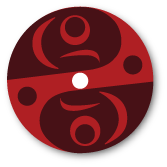Published:
Oct 16, 2009 The Skwxwú7mesh (Squamish Nation) welcomed Indigenous and non-Indigenous participants from across North America and Japan to their Elder’s Centre and Chief Joe Mathias Community Centre, nestled at the foot of Grouse Mountain near Vancouver, for our IPinCH Community-Based Heritage Research Workshop in October.
From the welcoming remarks and prayer given by Hereditary Chief Janice George to the closing by Elder Audrey Rivers, refreshments flowed and all our conference needs were met. Skwxwú7mesh know how to treat guests.
Throughout the two-day workshop, case study co-developers, academics, community members, students and Advisors delved into the needs of team members and community partners involved in our Community-Based Initiatives/case studies.
Team representatives from each initiative introduced their projects, touching on progress made and challenges encountered, often referring to the excitement the projects generated in their community. Later, breaking into two groups, community members and academics separately discussed questions and concerns around IP issues in cultural heritage, and around the IPinCH project itself. Upon reconvening, both groups were pleased to discover many of the same issues arose in their separate deliberations. There were also important differences; for example, Indigenous participants saw a need for more focus on elders and youth. Many topics raised were explored in greater depth on the second day of the workshop, and will continue to be foregrounded as IPinCH unfolds.
We were also privileged to have Coast Salish artist lessLIE, creator of the IPinCH logo Perpetuation, attend our workshop. He shared his thoughts on Perpetuation and his art in general, touching on complexities and challenges of the First Nations art market.
Workshop participants provided much-appreciated feedback on a draft questionnaire designed by Kelly Bannister, Julie Hollowell, and John Welch to get to the nitty-gritty of the needs of communities and academics working with them. The questionnaire is aimed at understanding the information, events and processes that people need and the formats they find useful.
Helpful suggestions from workshop attendees are now being used to revise the draft outline Kelly Bannister and Julie Hollowell unveiled for a Guide to Community-Based Cultural Heritage. This guide will be authored by an array of contributors, from community organizations, to academics, to students, to individuals participating in our community-based initiatives. Julie and Kelly will compile and edit the volume.
At the workshop, Hirofumi Kato from Hokkaido University’s Center for Ainu and Indigenous Studies mentioned to Project Director George Nicholas that the workshop marked the first time Ainu representatives had travelled outside of Japan to attend an academic conference.
Many intriguing ideas were raised in the high-energy workshop discussions. We will be implementing some of them, gathering more information around others, and learning how to weave them together into the practice and theory of IPinCH.
At the close of the workshop, Anishinabe elder Sydney Martin told Project Manager Kelly Fox she knew the words she had spoken at the workshop had been heard, concluding, “I trust IPinCH.”





